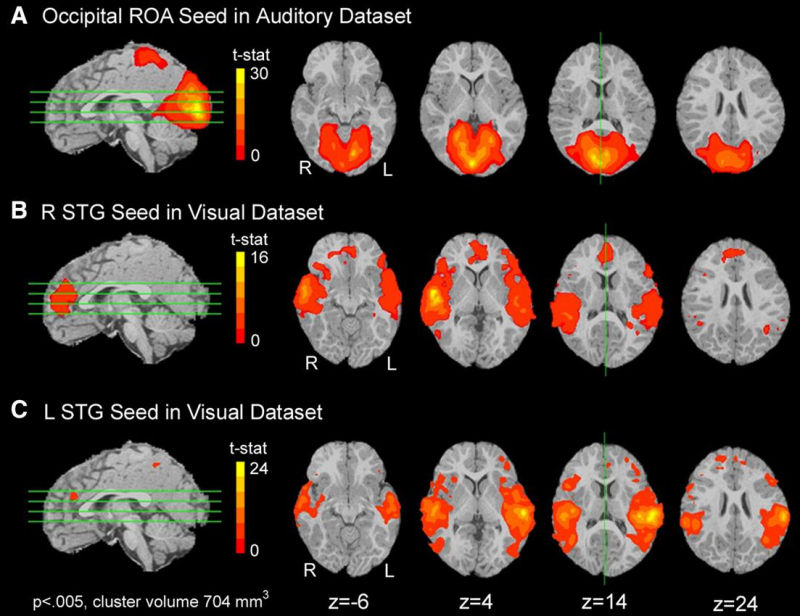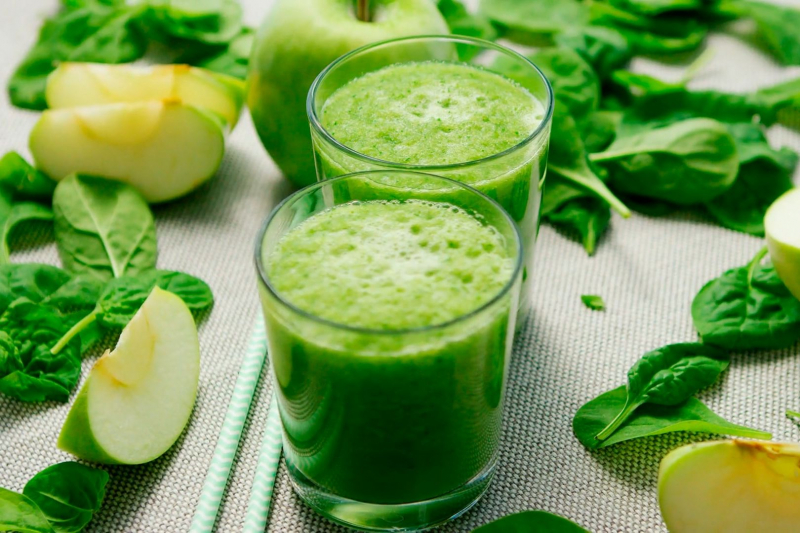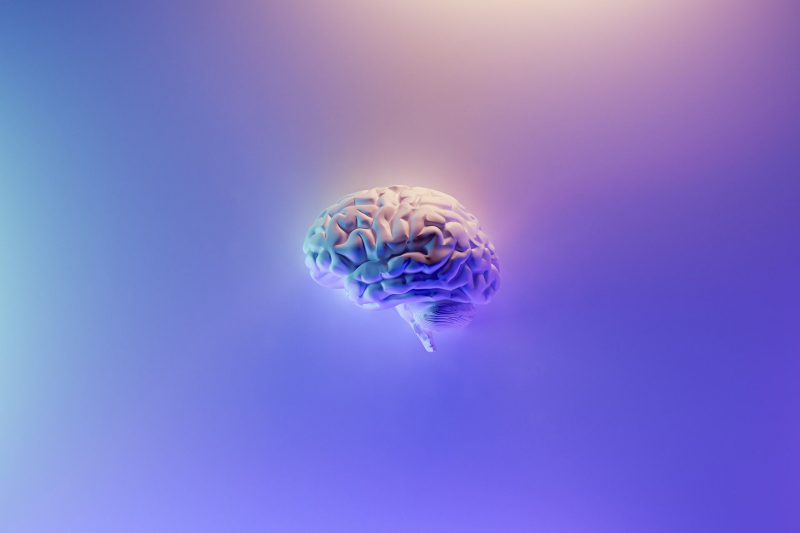1. We only use 10% of our brain
This is such a widespread myth that it has its own sizable Wikipedia article and even got made into the 2014 action flick Lucy – which not only based its entire premise on the tall tale, but implied that using your brain to its full capacity will pretty much make you one with the universe (spoilers!).
In fact, it’s so blatantly untrue that it’s hard to tell where to start the debunking. Let’s look at an fMRI scan of the human brain. In neuroscience, it is generally held that every region of the brain is almost always active (even when you sleep), which makes a lot of sense given the amount of sensory information we have to process every second.
Credit: sciencedirect.com
If that’s not enough, let’s look at some famous examples of people who suffered substantial brain damage to various sections of that organ – and still retained all or most of their mental capacities. If we only use 10% of the brain, then do these 10% somehow constantly fluctuate in the billions of neurons inside our heads?
Speaking of those billions, humans have evolved to have bigger brains (at the cost of more painful childbirth given our wider heads and narrower hips). Some of the changes may or may not be associated with the development of language and advanced tool-making. So, if 10% is enough, why go to all the trouble?
Conclusion: you can go to bed tonight safe in the knowledge that inside your head is arguably the most complex object in the universe, almost every part of which is at work all the time.
2. GMOs are bad for you
A soybean field in Ohio, US. Credit: Meredith Petrick on Unsplash (unsplash.com/mpetrick)
Regulations on genetically engineered crops vary around the globe – for instance, a substantial share of the crops produced in the US are genetically modified, while most EU member states still forbid most types of GM crops. This, along with other controversies, might be the root of this popular misconception. But is it a reason to believe that genetically modified produce is harmful to humans?
According to the WHO, genetic modification is a promising way to reduce food prices and develop non-allergenic crops. Also, just so you are absolutely sure: the GMOs we have today are mostly plants – science is a long way away from genetically modified microorganisms or larger creatures. Most genetically modified products on the market are designed to be more resistant to disease and have been tested for three major safety concerns: they are non-allergenic and are unlikely to transfer any of their genes to either the human digestive tract or other crop species.
Conclusion: Facts show that not only are GMOs not dangerous, but they also improve the nutritious value of our food while reducing its price and helping us feed an ever-growing world.
3. You have to get rid of the toxins in your body
Adepts of the detox lifestyle will urge you to smoothie your way out of ill health – but will it really help? Credit: Jugoslocos on Unsplash (unsplash.com/jugoslocos)
First things first, let’s define “toxins.” According to scientists, toxins are substances synthesized by living things that can be harmful to other organisms. In nature, toxins are used to attack others or protect oneself from attack. Notably, they are not “alive” in the sense that they cannot reproduce themselves. Crucially, anything of non-biological origin is, strictly speaking, not a toxin. So, realistically speaking, the only toxins in your life usually come from your food or, say, getting stung by a bee.
Sure, every contact with a seemingly harmful organic substance should be dealt with swiftly and sensibly. But what toxins exactly are we supposed to think of upon hearing the magic word “detox?” The substances we’re supposed to get rid of through this wondrous procedure are conveniently undefined – the idea is just to make you feel that there’s something you should do to stop your intoxication ASAP.
We’ve already praised our brain and now it’s time to admire everything else inside our bodies: our lungs, intestines, liver, and kidneys all work hard to extricate any unwanted substance from the body. It’s pure magic – or, rather, pure science! So, whichever toxin you might inhale or consume, your body will always do its very best to not let that affect you. Of course, that doesn’t quite apply to heavy stuff – like poisons or venoms (yep, those are two different things!) – but then again, how often do you encounter those in everyday life?
The most harmful toxin you’re likely to run into this summer. Credit: Krzysztof Niewolny on Unsplash (unsplash.com/epan5)
If you’re drawn to the talking points of the whole detox concept, try getting to the root of the problem instead. Feeling heavy and bloated? Struggling with acne? Or maybe you’re just tired all the time? These and many other issues can be addressed with your physician, while the many detoxes on offer might not only do nothing, but can even harm you instead.
Conclusion: take care of yourself by sleeping well, exercising, and eating a balanced diet – and let that be the best detox you’ll ever need.
Of course, we cannot but mention today’s most impactful and harmful myths: those surrounding the COVID-19 pandemic and the nature of vaccines. To learn more about the scientific perspective on those subjects, check out our articles on everything you need to know about COVID-19 and understanding vaccines.

